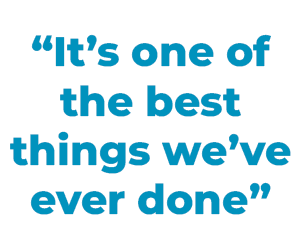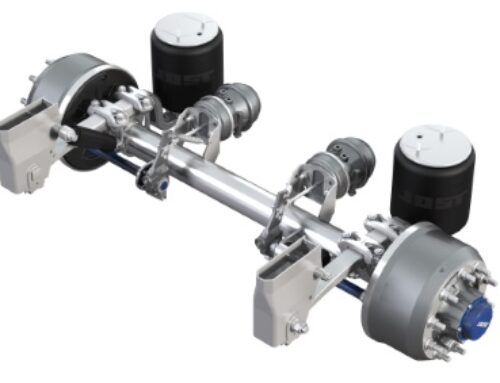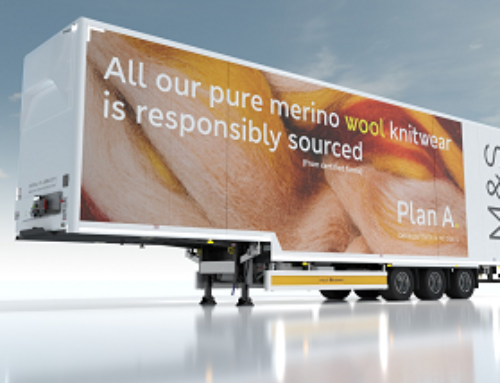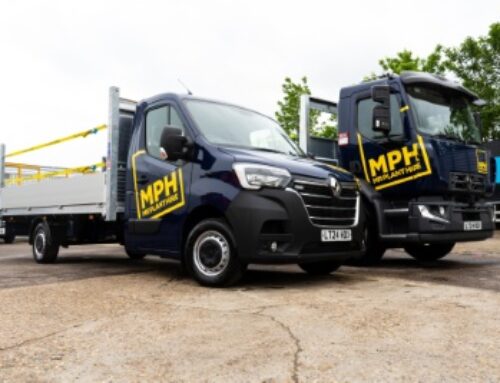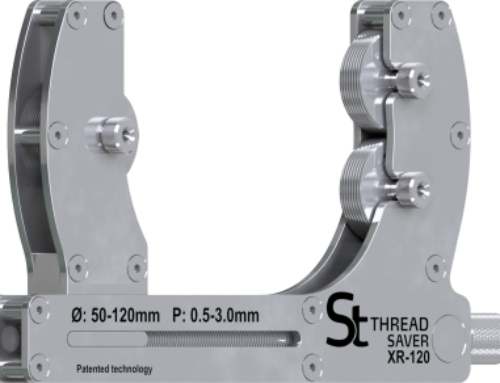GreenChem: the road to greener AdBlue production
AdBlue manufacturer GreenChem Solutions Ltd has offered insight into its efforts to reduce its carbon footprint during the production process.
“At GreenChem, we are always looking for ways to make positive environmental impacts, not only through our AdBlue solutions but also in our operations,” said Chris Haynes, managing director.
“AdBlue has long been a unique product that is key in reducing harmful emissions in diesel engines. Its production traditionally requires the use of fossil fuels – which has presented certain environmental challenges.”
Traditional AdBlue production
“AdBlue, a 32.5 per cent urea solution mixed with demineralised water, works in the selective catalytic reduction (SCR) systems to reduce harmful nitrogen oxide (NOx) emissions from vehicles,” said Chris.
“Its usage and applications have gained prominence since the European Union tightened regulatory controls on pollution, starting back in 2006 with Euro IV, making it an essential component in the battle for cleaner air. Despite AdBlue’s environmental benefits, the manufacturing process traditionally remains dependent on fossil fuels, especially during the dissolving process.
“Traditionally, AdBlue is produced by dissolving an appropriate grade of urea (AMU or AGU) in pure water. This process is called endothermic, which means that during it, the temperature of the blend (mixture-solution) drops. Because of this endothermic phenomenon, water needs to be heated to prevent the urea solution from freezing.
“The standard procedure when dissolving urea in water in the AdBlue production process is to heat water to approximately 40 °C. In order to heat water, one can use any type of heating, e.g., an electrical boiler, a boiler with combusted (i.e. burnt) natural gas, oil, coal, or biomass.”
Innovation in producing AdBlue with less CO2
Thankfully, a new dawn is breaking in AdBlue manufacturing, says Chris.
“Always keeping our motto ‘Let’s make the environment cleaner’ in mind, we have carried out a small exercise in our UK office and our local partner Brooke Energy.
“Brooke Energy specialises in producing high-quality dry wood chips for the biomass boiler market. They are an authorised and proud supplier of clean-burning, low-moisture, and efficient wood fuel.
“So, to be clear, Brooke Energy’s production of AdBlue is like any other AdBlue production process, i.e., dissolving urea in water. What is specific in their case is that they use biomass instead of classical fossil fuels (natural gas, oil, coal) to heat the water used for urea dissolving.”
Brooke Energy incorporates waste wood, a form of biomass, into the AdBlue production line, Chris explains.
“This waste wood, which would otherwise contribute to landfill or incineration, is instead repurposed as a source of heat. This innovative approach addresses two significant environmental challenges simultaneously. By replacing natural gas with a renewable energy source, the carbon footprint of AdBlue production is dramatically reduced.
Furthermore, waste wood provides a sustainable alternative to fossil fuels and diverts tonnes of material away from landfills, contributing to a circular economy.
“The heat from the biomass units is used not only in the manufacturing of a lower carbon footprint AdBlue for GreenChem, but also generates electricity via a steam turbine, feeding the national grid.
“Furthermore, future development of this process is to incinerate non-recyclable waste which will in turn be used to heat up to 8,000 homes on two separate housing projects, supplying both electricity and direct heat from the plant – vastly reducing waste to landfill, which helps contribute to a sustainable future and preserve the environment.”
Chris concluded: “The collaboration between GreenChem UK and Brooke Energy is an achievement. The technology and processes developed here are notable examples that inspire others to follow. The automotive industry may be slow to catch up, but positive changes are definitely happening. And together, we can make it happen!”





